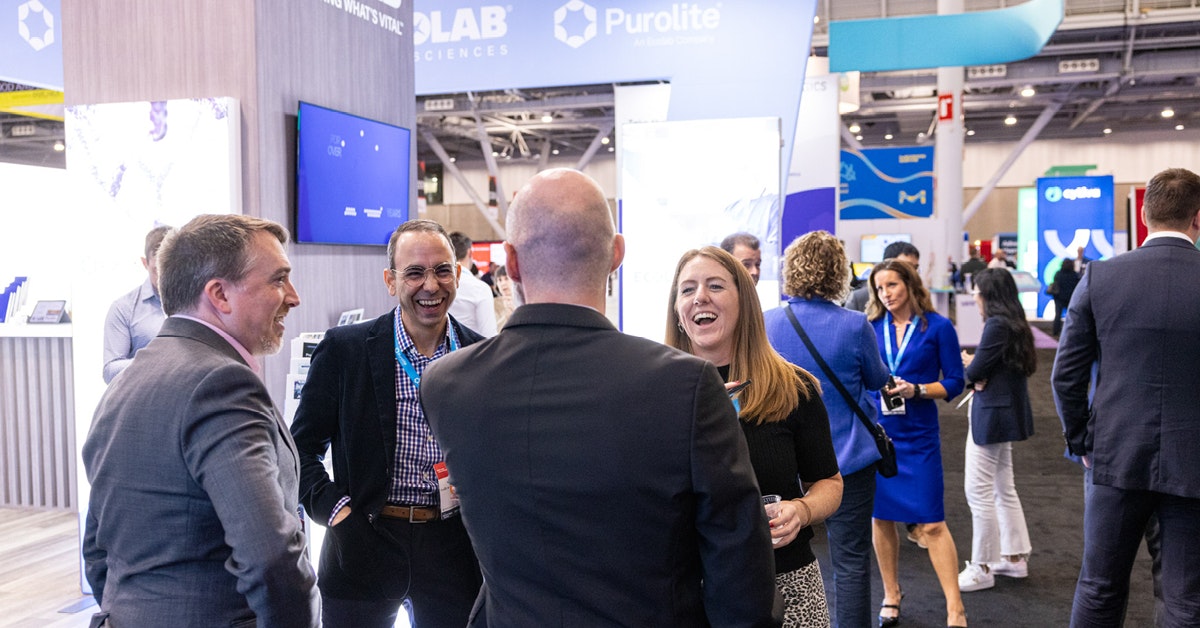San Diego Convention Center,
San Diego, CA, USA
Manufacturing Strategy, AI & Bioprocessing 4.0 Track
The biomanufacturing landscape is evolving fast. With new modalities, global supply-chain volatility, and digital transformation reshaping production, success depends on strategy as much as technology. The Manufacturing Strategy track unites leaders in process innovation, AI, facility design, and operations to discuss how to future-proof manufacturing for flexibility, speed, and quality.
Building the Future of Biomanufacturing that’s Digital, Agile, and Global - Take a Look at Key Topics:
Digital Twins, AI & Real-Time Process Control
Manufacturing is being transformed by the adoption of digital twins, AI/ML models and real-time monitoring to improve predictability, reduce variability and speed up scale-up or tech-transfer. Join sessions like “Machine-Learning-Enhanced Digital Twins for Quality Prediction” to see how companies are leveraging virtual replicas and analytics to simulate scenarios, de-risk operations and accelerate decision-making.
Smart, Flexible & Agile Manufacturing Models
With growing modality diversity, region-specific launch requirements, and shorter development timelines, manufacturing strategies must shift toward flexible, agile, and modular models. Sessions such as “Multi-Objective Optimization of Single Steps and Complete Process Chains Using AI-Based Digital Twins” highlight the industry’s push toward multiproduct facilities and the ability to rapidly reconfigure manufacturing lines.
Supply Chain Resilience & Strategic Tech Transfer
Manufacturing strategy is no longer just about the plant - it’s about the entire value chain: tech transfer, raw-material security, global site readiness and scalability. Sessions like “Achieving Supply Chain Resilience in Bioprocessing” will underline how companies are embedding manufacturing strategy early and building resilient networks amid global volatility.
Decision-Making Frameworks for Process Strategy: Continuous vs. Fed-Batch
As bioprocess intensification and new modalities emerge, a key strategic question remains: which process model delivers the optimal balance of cost, speed, risk and flexibility? Companies must evaluate molecule type, facility readiness, supply-chain implications and digital capabilities when selecting their manufacturing strategy. Join the panel session: “Continuous vs. Fed-Batch Upstream – The Ongoing Debate” to see why this remains a critical issue.
Manufacturing Strategy Speaker Spotlight
FAQs
What topics are covered in the Manufacturing Strategy, AI and Bioprocessing Track at BPI West?
This track explores biopharmaceutical manufacturing strategy, digital transformation, artificial intelligence in bioprocessing, advanced analytics, automation and data-driven decision-making across development and commercial manufacturing.
How does the agenda address the use of AI and machine learning in bioprocessing?
The agenda examines how AI, machine learning and advanced analytics are being applied to process optimization, predictive modeling, real-time monitoring and improved process control in biologics manufacturing.
Does the track focus on both technical and strategic manufacturing challenges?
Yes, content balances technical bioprocessing innovation with high-level manufacturing strategy, including capacity planning, digital maturity, operational efficiency and aligning technology investments with business goals.
What insights are shared on digital transformation in biomanufacturing?
Discussions focus on implementing digital tools, integrating data across systems, overcoming organizational barriers and building scalable digital manufacturing ecosystems that support long-term growth.
How does the track address process robustness and efficiency?
The agenda highlights strategies to improve process robustness, reduce variability, enhance yields and increase operational efficiency through automation, modeling and data-driven process understanding.
Are advanced manufacturing technologies and platforms discussed?
Yes, the track explores emerging bioprocessing technologies, continuous manufacturing approaches and next-generation platforms designed to support flexible, efficient and resilient manufacturing operations.
Does the agenda cover data strategy and analytics for manufacturing decision-making?
The track emphasizes the role of data strategy, analytics and digital infrastructure in enabling faster decision-making, improved process insights and proactive risk management across manufacturing operations.
How does this track support organizations scaling from development to commercial manufacturing?
Content addresses how to design manufacturing strategies and digital capabilities that scale effectively from clinical production to commercial operations while maintaining quality, compliance and cost control.
Who should attend the Manufacturing Strategy, AI and Bioprocessing Track?
This track is designed for manufacturing leaders, process engineers, digital transformation teams, data scientists, technical operations professionals and strategy leaders involved in modernizing biopharmaceutical manufacturing.



